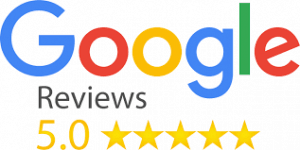
HVAC SEO Expert in Reno
HVAC SEO Reno: How to Win at Google’s Local Search in the AI Age
If you own an services business in Reno, Nevada, Google has a big impact on local HVAC services. For HVAC contractors in Reno, local SEO is key for getting noticed online. How Google shows local HVAC contractors in Reno proves why smart HVAC SEO is crucial to grab a top spot in search results – and that’s not just about being #1.
Let’s check out how local search results look for an HVAC contractor here in Reno.
- Go to free keyword research tool like Neil Patels Ubbersuggest.
- Pop in your companies website url and click go!
- Click on Organic Keywords.
- Sort page 1 – 2 and see how many of those keywords are in positions 1 – 10 in Google search.
- The keywords should be related to HVAC services and be on page 1.
If not, give me a call and lets get a plan of attack in place to rank your HVAC company in Google asap. Sandy 775-870-0488.
More Than AI: What Makes People Choose an HVAC Contractor in Reno
Good reviews on Google are like a digital thumbs-up for Reno’s HVAC contractors, building trust with potential customers. A recent ACHR NEWS survey showed that 90% of people think reviews are important when making a buying decision. Reno HVAC businesses can’t ignore this. People love buying, but they hate being sold to. Let your reviews do the heavy lifting of selling your services. You focus on giving great customer service and showing your expertise – that’s what sets you apart from other Reno HVAC companies.
While active social media helps with trust, being easy to reach through different channels – phone calls, texts, chats, and emails – is super important for Reno HVAC contractors to build trust. AI might shape how people start looking for info, but these factors really sway who they finally pick as their contractor in Reno.
Updating HVAC SEO Reno Strategies in the AI World
Understanding how people are changing the way they look for services is step one in updating HVAC SEO Reno strategies. HVAC businesses should use AI tools to boost their SEO, using data-driven insights to create targeted content. But here’s the thing: you should focus less on ranking your website and more on ranking your Google Business Profile (GBP) for the best results. Why? Because the search results page has changed a lot.
About 10% of Reno folks click on some kind of paid ad, like Google Guaranteed/Local Service Ads or Google Adwords. 30% click on local organic results at the bottom. This is mostly where AI will take clicks from because people are in “information gathering” mode here. The heart of your HVAC SEO Reno plan should be getting your GBP in the top three spots in the “sweet spot” of the search results. Those three businesses grab the other 60% of clicks, and these are from people ready to call a local Reno HVAC business (in other words, ready to book work).
Shifting Your HVAC SEO Reno Focus to Where It Counts
While your blog posts and articles matter, your GBP ranking for your services in your Reno area is way more important than churning out another blog post. Really engage with your GBP and fully optimize it. Include all your business categories (there are at least eight that every Reno HVAC contractor should have), what services you offer, FAQs, responses to reviews, and most importantly, correct business info. Are your hours, phone number, address, website, and so on up-to-date?
Next, you need to send signals to Google that your GBP is important and relevant all over your Reno service area and in your specific industry – I’ll dive into that in a future article. The third part of Google’s ranking formula is proximity, but you can’t really move your business closer to your customers for every search, so just stay put in Reno.
Focusing your HVAC SEO Reno work on your GBP will get you more visibility and name recognition in the Reno area, but most importantly, more phone calls from potential customers. That is, as long as you have a great reputation with lots of reviews (100+) and at least a 4.0-star rating. If you drop below 4.0 stars, 54% of people won’t call your business – you basically lose more than half your referrals in Reno.
Bottom line: your reviews are what turn Reno residents seeing you online into them actually calling, texting, chatting, or emailing you to schedule HVAC work.
Wrapping Up HVAC SEO Reno
In a nutshell, the mix of AI and local SEO opens up chances for forward-thinking Reno HVAC businesses. While AI changes how Reno folks look for info, local HVAC contractors can do well by adapting and improving their online presence. Do this by making your GBP the main focus of your HVAC SEO Reno efforts. The rise of AI doesn’t mean the end of local SEO; instead, it’s a call for Reno HVAC businesses to embrace new tech, making sure they stay visible and relevant as consumer habits change.
Take advantage of this opportunity AI brings. Update your HVAC SEO Reno strategy now to get ahead of your competition, use AI tools, and keep a strong online reputation. The future of HVAC services in Reno is in the hands of those who can navigate both AI and local SEO, giving customers the best of both worlds.
What are you going to do now to dominate HVAC SEO in Reno?
















